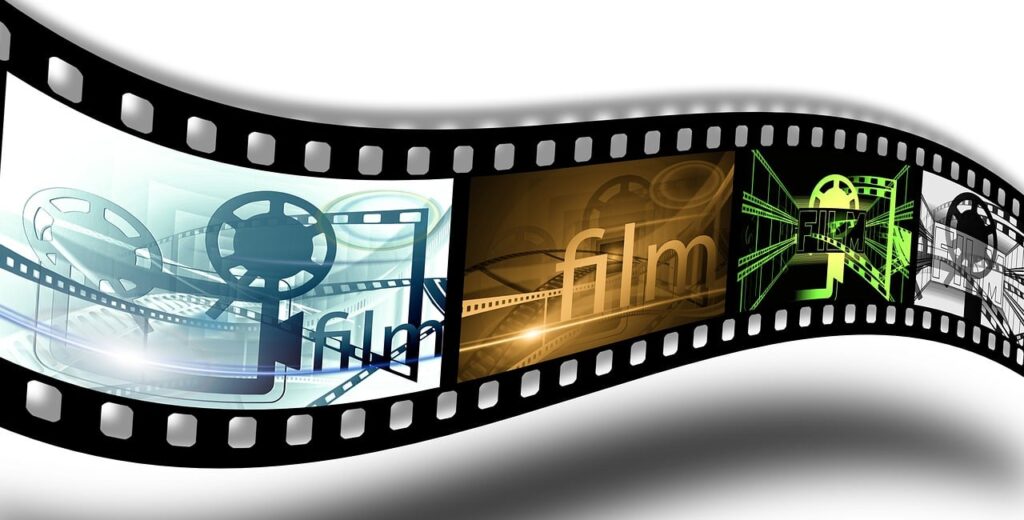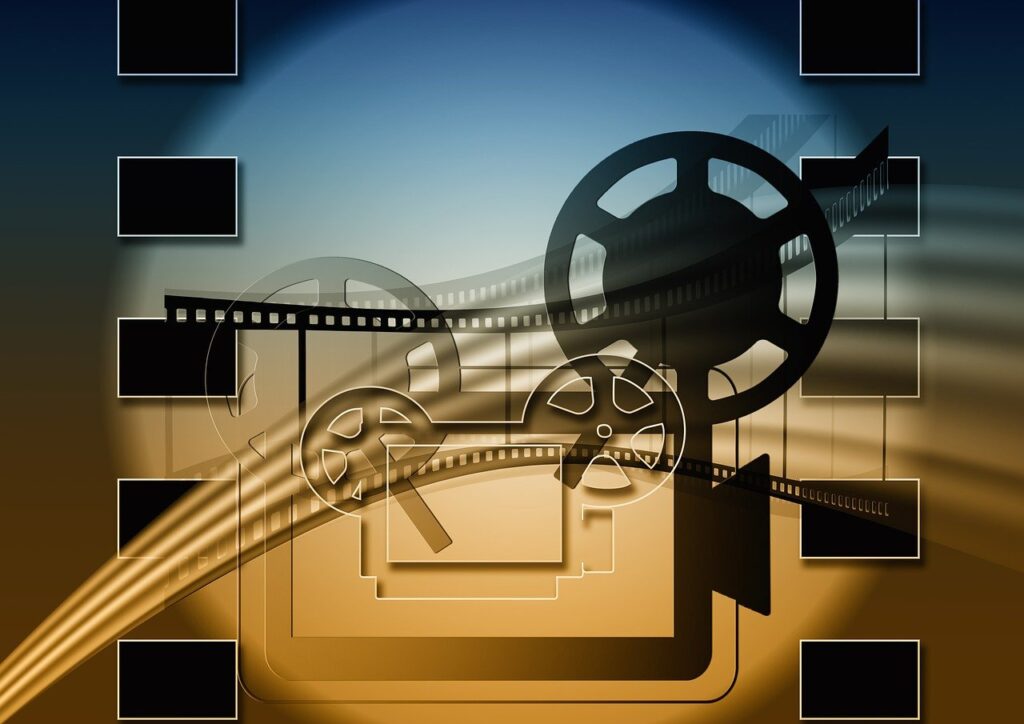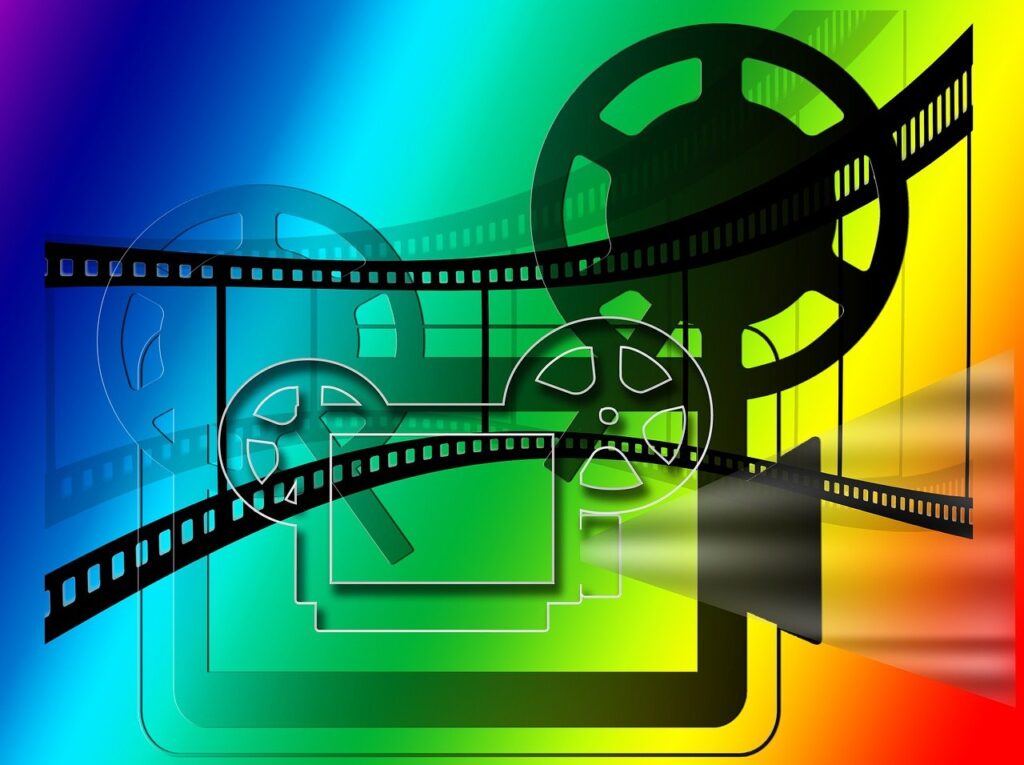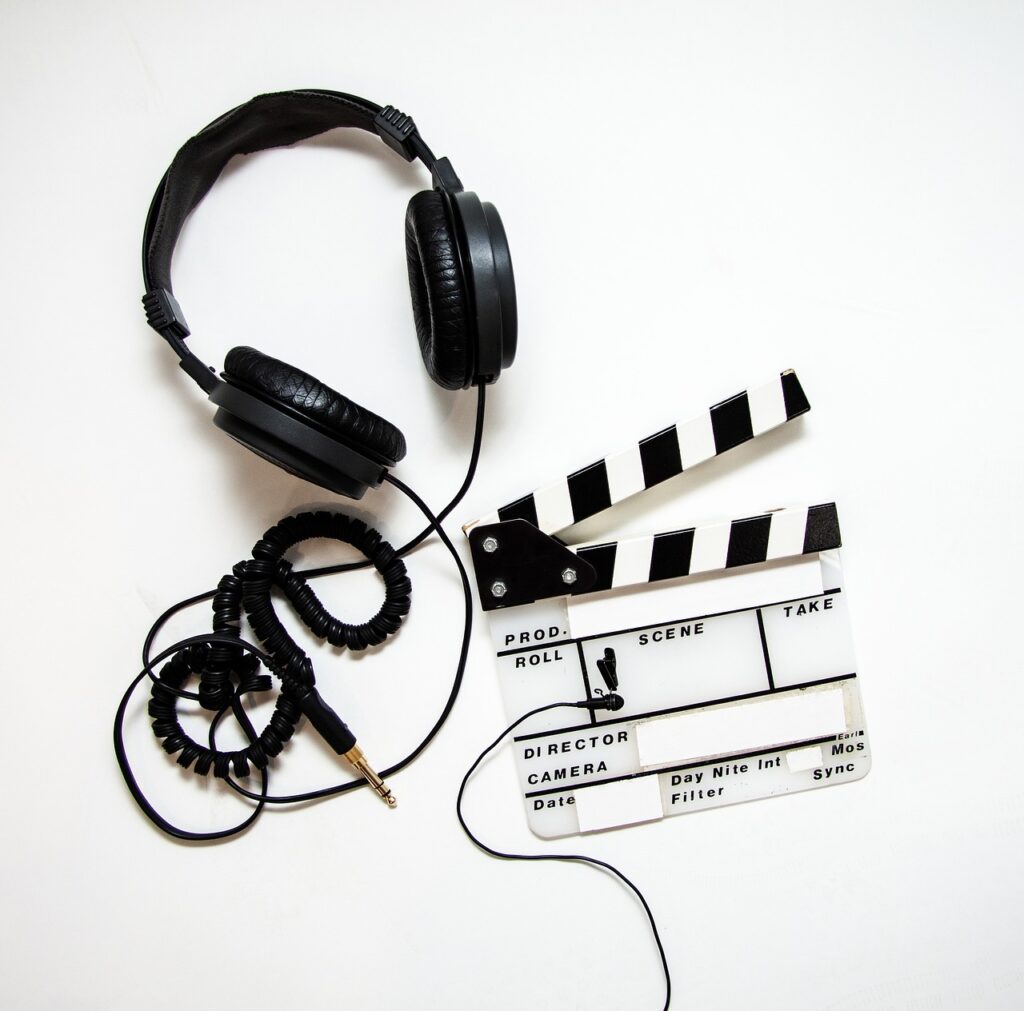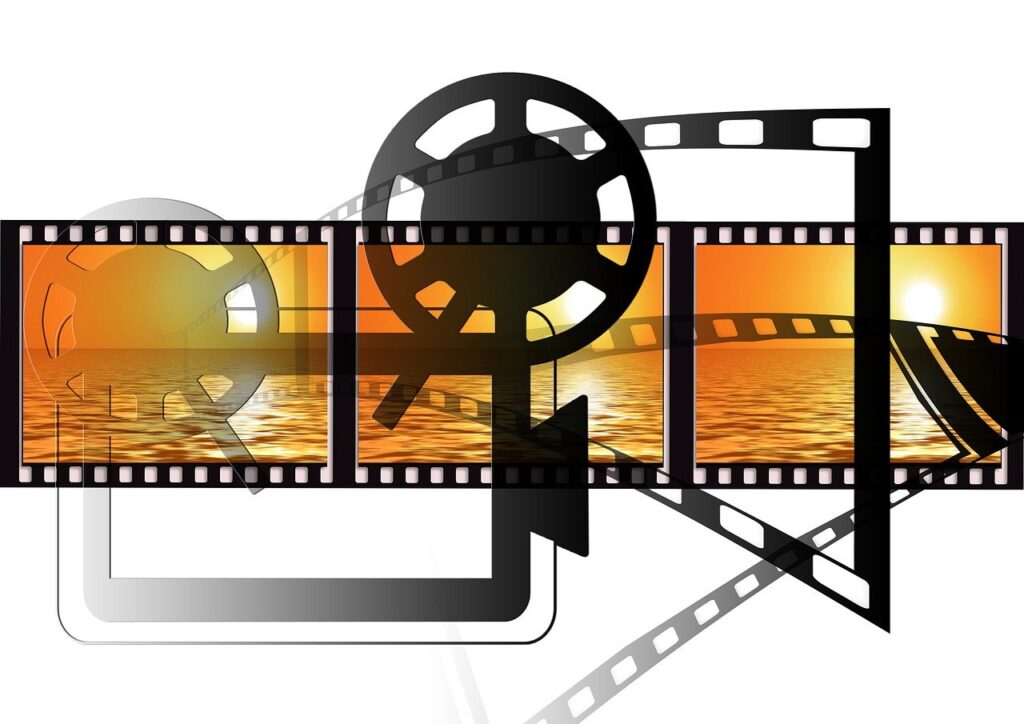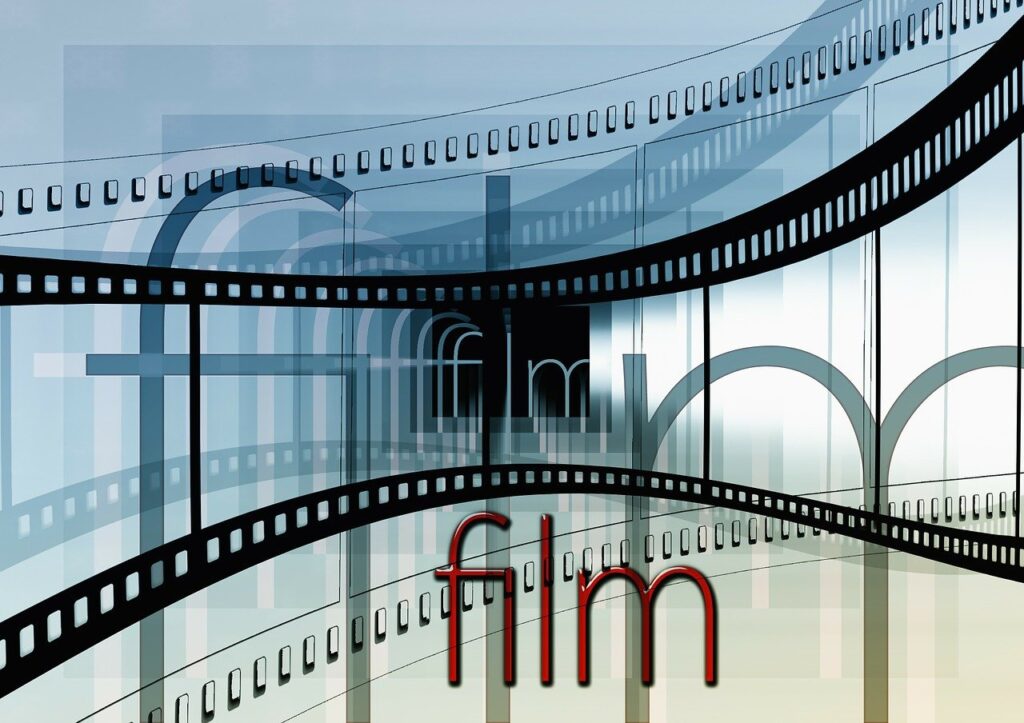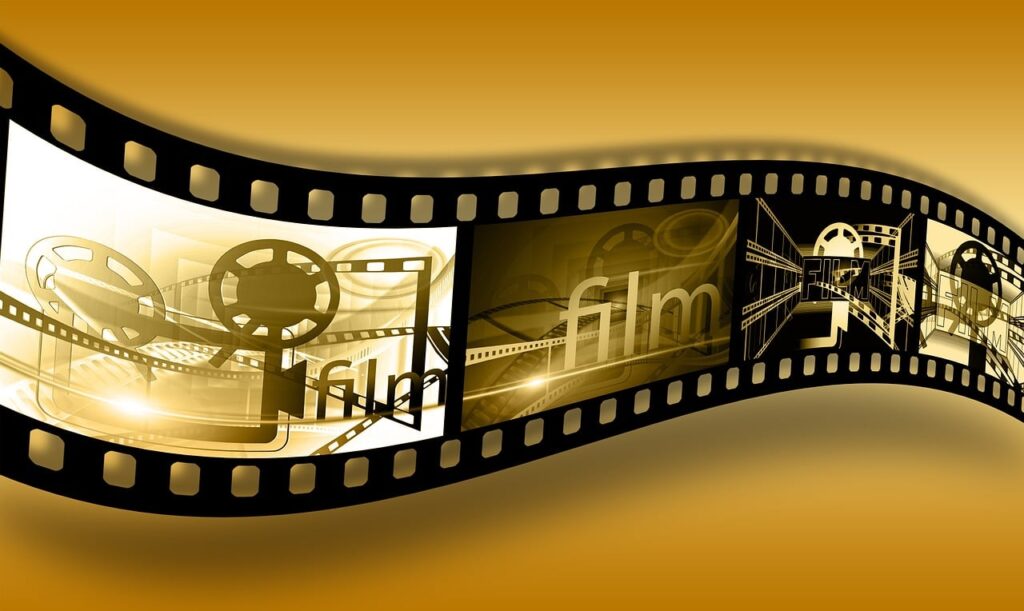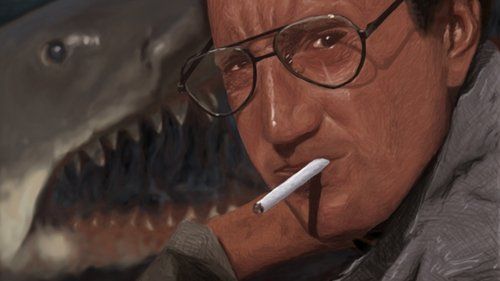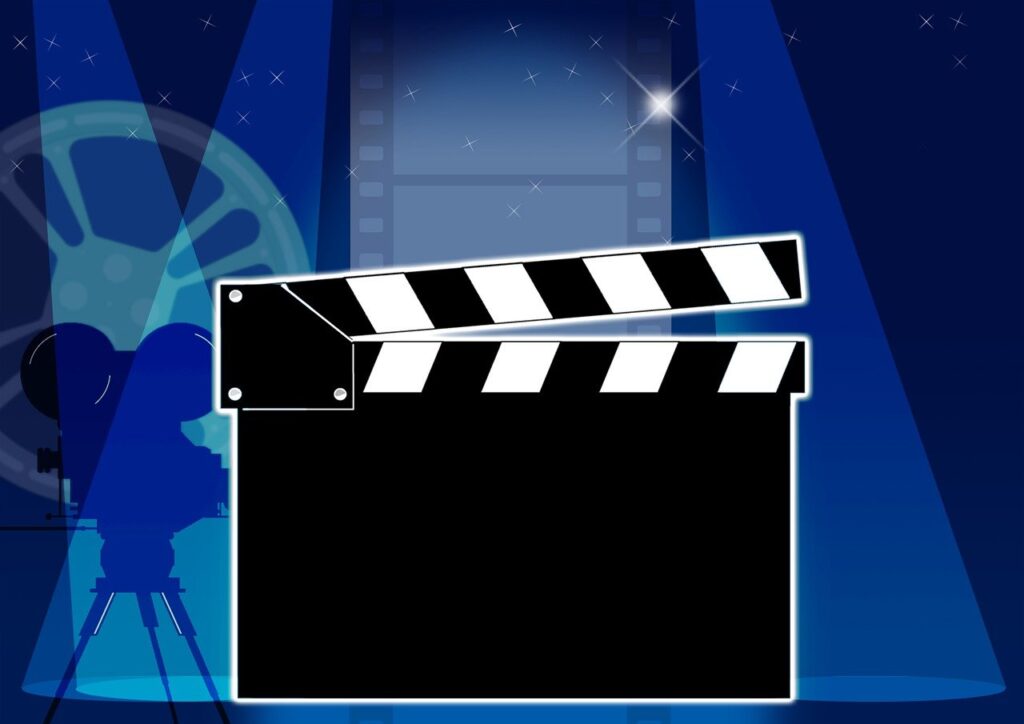
The magic of books meeting the silver screen! It sounds like a dream, right? We’ve all been there, utterly captivated by a novel, lost in its pages, and then the exciting news drops: it’s being adapted into a movie! Our imaginations race, we picture our favorite characters coming to life, and we instantly start dream-casting the roles. There’s a special kind of anticipation that comes with waiting to see how Hollywood translates the stories we hold dear.
And let’s be real, sometimes it works! Think about the epic journeys of “The Lord of the Rings,” the wizarding wonders of “Harry Potter” (most of them, anyway!), or the nail-biting suspense of “Gone Girl.” Those adaptations genuinely captured the essence and excitement of their literary counterparts, giving us new ways to fall in love with beloved tales. But then… there’s the other side of the coin. The side where things go wonderfully, spectacularly wrong.
Nothing stings quite like walking out of a cinema, or clicking out of a streaming service, feeling utterly bewildered, disappointed, or even, dare we say, a little betrayed. It’s like the director completely missed the memo, the actors had zero chemistry, or the script took a wild detour into “what-were-they-thinking” territory. We’re talking about those adaptations that make you want to grab the book, clutch it to your chest, and whisper, “It’s okay, baby, they can’t hurt you anymore.” So, get ready, because we’re diving headfirst into the cinematic catastrophes that proved, once and for all, that some books are just better left on the shelf.

1. **Dune (1984)**: Let’s kick things off with a classic example of a sprawling epic that just couldn’t quite make the leap to the big screen – David Lynch’s 1984 take on Frank Herbert’s monumental sci-fi novel, *Dune*. We’re talking about a book that’s practically a universe unto itself, packed with intricate politics, complex ecology, and deep philosophical musings. Trying to squeeze all that into a standard two-hour runtime was always going to be an uphill battle, and sadly, this adaptation proved it was a battle lost.
Lynch’s *Dune* has gone down in history as a deeply convoluted and often nonsensical disaster. Despite featuring an enjoyably oddball cast, the film struggled to make sense of the source material’s vast scope, leaving audiences scratching their heads more often than marveling at sandworms. It was a visual spectacle, sure, but one that seemed to lose the plot, quite literally, amidst its own ambition.
It’s perhaps one of the most famous examples of a director publicly disowning their own work, a clear sign of how far off the mark it felt even to its creator. While a more recent adaptation from Denis Villeneuve, starring Timothée Chalamet and Zendaya, finally managed to impress critics and fans alike, the 1984 version stands as a stark reminder that some stories demand more space, more care, and perhaps, just a little less… well, *Dune* messiness.
Read more about: From Legendary Icons to Modern Muses: 11 Redheaded Actresses Who’ve Lit Up Hollywood and Stolen Our Hearts
2. **The Bonfire of the Vanities (1990)**: Next up, we have *The Bonfire of the Vanities*, a prime example of how even a bestselling novel and a star-studded cast can go completely sideways. Tom Wolfe’s original book was a brilliant, biting satire, a deep dive into the excesses, racism, class struggles, and ambition simmering beneath the elite society of 1980s New York. It was sharp, incisive, and truly captured a specific moment in American culture, making it a literary sensation.
Hollywood, naturally, came calling, with Warner Bros snapping up the movie rights for a whopping $750,000. They had director Brian De Palma at the helm and a truly incredible cast lined up, including Tom Hanks, Melanie Griffith, Bruce Willis, Morgan Freeman, and F. Murray Abraham. On paper, it sounded like a surefire hit, destined for critical acclaim and box office gold. What could possibly go wrong with such a dream team?
Well, just about everything, it seems. The film, released in 1990, became a notorious flop. Despite the impressive talent, the adaptation was criticized for being shallow, obvious, and feeling heavily sanitized, losing all the nuanced bite of Wolfe’s original work. Hanks and Griffith, in particular, were considered miscast, especially after De Palma’s initial choices turned him down. It struggled to capture the novel’s spirit, transforming what was meant to be a thorough social study into something far less impactful.
The behind-the-scenes drama was so intense and well-documented that it even inspired its own book, Julie Salamon’s *The Devil’s Candy*, which chronicled the rising on-set troubles. This film is so infamously bad that even Tom Hanks, Hollywood’s perennial nice guy, has reportedly agreed that this is the crappiest movie he’s ever made. Ouch!
3. **Billy Bathgate (1991)**: When you bring together an Oscar-winning director like Robert Benton (of *Kramer vs Kramer* fame), a script by the legendary Tom Stoppard, and a cast featuring Dustin Hoffman and Nicole Kidman, you’d expect nothing short of cinematic brilliance, right? That was the promise of 1991’s *Billy Bathgate*, an adaptation of E.L. Doctorow’s highly praised 1989 novel, which delves into the world of gangster Dutch Schultz through the eyes of its young protagonist.
Doctorow’s novel was beloved for its rich narrative and, crucially, the distinctive voice of its central character’s narration. This internal monologue was a huge reason behind the book’s success, drawing readers deep into the protagonist’s world and his observations of the criminal underworld. It provided the magic, the nuance, and the emotional core that made the story so compelling.
However, the film version decided to largely forgo this narrative device. What resulted was a “hollow adaptation” that utterly failed to do justice to the source material. Despite all the top-tier talent involved, the film simply couldn’t conjure the depth and power of the novel. It lacked the very essence that made the book a classic, leaving audiences with a visually polished but emotionally empty experience.
Instead of standing proudly alongside gangster film giants like *The Godfather* or *Goodfellas*, *Billy Bathgate* quietly faded into obscurity, serving as a cautionary tale about stripping away the narrative heart of a book. Sometimes, what makes a novel truly shine is precisely what gets lost in translation when adapting it for the screen.
Read more about: Robert Benton, Oscar-Winning Screenwriter and Director, Dies at 92: A Deep Dive into a Cinematic Legacy
4. **The Scarlet Letter (1995)**: Nathaniel Hawthorne’s 1850 novel, *The Scarlet Letter*, is a foundational text of American literature, a profound exploration of guilt, dogma, and human desire set within a rigid Puritan colony. D.H. Lawrence even called it “a perfect work of the American imagination.” It’s a book that’s moved generations of readers and is practically a rite of passage in high school English classes, dealing with the powerful story of Hester Prynne and her defiant scarlet ‘A’.
So, when Hollywood decided to give it a “makeover” in 1995, starring Demi Moore as Hester Prynne and Gary Oldman as the Reverend, there was certainly potential. However, director Roland Joffé’s vision for this classic was, shall we say, *unique*. It strayed so incredibly far from Hawthorne’s original pages that what should have been a nuanced, enticing romance rooted in complex societal pressures instead morphed into an “extremely throwaway erotic drama.”
This adaptation quickly became the “brunt of ridicule” and flopped spectacularly at the box office, earning its spot on almost every “worst adaptations” list out there. It veered into “cheesy erotic thriller territory,” altering essential parts of Hawthorne’s work, including (gasp!) its iconic ending. Even Demi Moore’s defense of the changes, suggesting it was to preserve “the ultimate message of Hester Prynne,” couldn’t save it from being a colossal failure in adaptation.
In stark contrast to a later, much-loved (and intentionally comedic) adaptation like “Easy A,” the 1995 *Scarlet Letter* serves as a glaring example of how mishandling a beloved classic can result in a movie that utterly misses the point, leaving behind a truly unforgettable, and not in a good way, cinematic misstep.
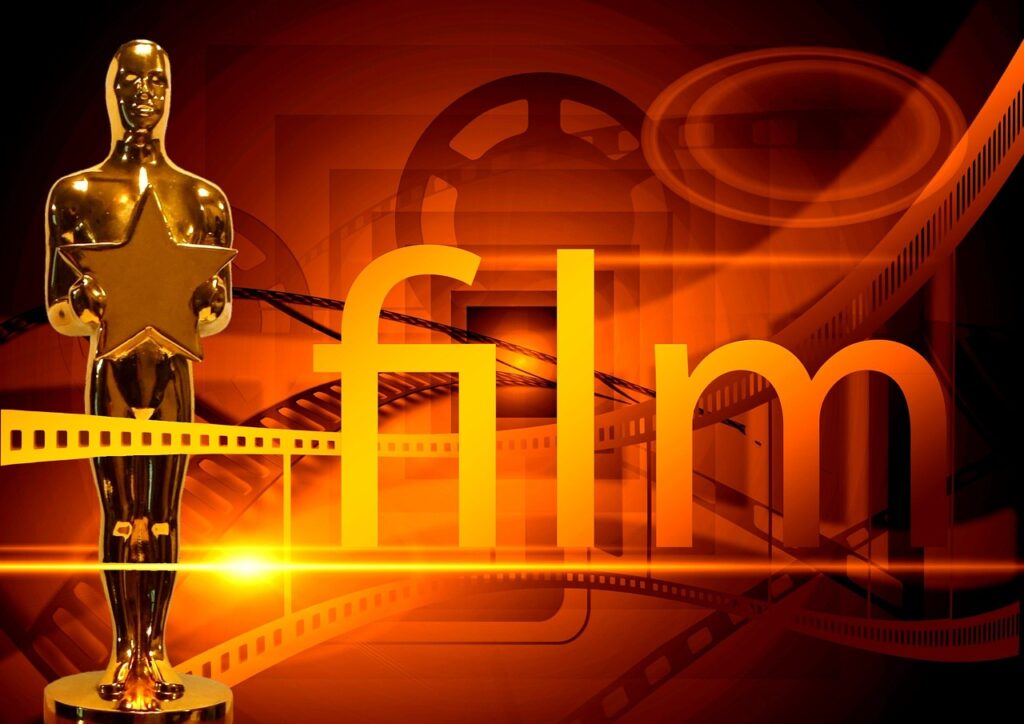
5. **Battlefield Earth (2000)**: Brace yourselves, folks, because we’re talking about a movie that has achieved legendary status in the “Worst Movies Ever” canon: 2000’s *Battlefield Earth*. Many people know it as an epic misfire starring John Travolta with dreadlocks, but did you know this notorious film actually started as a book? Yes, L. Ron Hubbard’s 1982 novel, *Battlefield Earth: A Saga of the Year 3000*, concerning an Earth taken over by an evil alien race called Psychlos.
To be fair, even the context admits that “few would be able to turn” Hubbard’s allegedly Scientology-inspired tome “into something decent.” The book itself is described as “very strange,” and somehow, the movie managed to be even stranger. It tells the story of young human Jonnie Goodboy Tyler’s heroic efforts to reclaim Earth from the Psychlos, with John Travolta playing the lead Psychlo, Terl, in what was apparently a passion project for the noted Scientologist actor.
Under the direction of Roger Christian, the film became an absolute sensory overload – a “cacophonous assortment of canted angles, ugly color correction, and miserable performances.” It was like “Batman Forever” got hit in the head with a big hammer, as one critic so eloquently put it. The film’s visual and narrative chaos not only earned it infamy but also had real-world consequences for its stars.
*Battlefield Earth* is widely credited with effectively “ending Travolta’s mainstream movie career” and, even more tragically, “destroying Barry Pepper’s before it even started.” It’s a truly jaw-dropping failure, a benchmark in bad moviemaking that reminds us sometimes, just sometimes, the book really *should* have been left alone.
Read more about: Cinema’s Most Memorable Misfires: A Deep Dive into 14 Films That Defined ‘Worst Ever’
6. **Captain Corelli’s Mandolin (2001)**: Louis de Bernières’s *Captain Corelli’s Mandolin* was a literary phenomenon in the 1990s, capturing hearts with its poignant story of love, war, and resistance on the Greek island of Cephalonia during World War II. It was a novel brimming with heart and soul, earning it massive literary success and a devoted readership. So, when a film adaptation was announced, expectations were understandably high.
The 2001 film version, produced by the same British company responsible for the charming *Notting Hill*, seemed to have all the makings of a sweeping romantic drama. However, what graced the screen was a stark disappointment. Critics and fans alike noted that the movie “lost all traces of the novel’s heart and soul,” failing to capture the rich emotional depth that made the book so beloved.
A major sticking point for many was the casting of Nicolas Cage as Captain Corelli and Penélope Cruz as Pelagia. Despite their individual talents, the two lead stars “lack any chemistry” whatsoever, which is a significant problem when your film hinges on a passionate wartime romance. The dialogue was also widely panned as “disastrous,” further undermining any emotional connection the audience might have hoped to forge with the characters.
While the film “may look pretty” with its scenic Greek backdrops, its beauty was only skin deep. Beneath the glossy exterior, it was an adaptation devoid of the literary magic, ultimately deemed a “complete mistake.” It’s a sad lesson in how even the most beautiful settings and popular source material can be undone by a lack of genuine chemistry and a poorly translated script.

7. **The Time Machine (2002)**: H.G. Wells’s 1895 science fiction novella, *The Time Machine*, is an absolute classic, pioneering the concept of time travel in literature and exploring profound societal questions through its imaginative narrative. Its beauty lies in its elegant simplicity and its thought-provoking themes, making it a timeless piece of speculative fiction that has inspired countless other stories.
In 2002, a new adaptation arrived, directed by none other than Wells’s own great-grandson, Simon. This connection surely raised hopes that the film would finally do justice to the legendary author’s vision. However, what we got was a movie where the original’s “beauty… was lost amid all the CGI,” turning a thoughtful narrative into an “insipid” visual spectacle that prioritized effects over essence.
The film was plagued by wooden performances, with even lead actor Guy Pearce unable to infuse much life into his character. It felt as though “everything featured… is wooden apart from the copper time travel contraption at the heart of the story” itself. This observation perfectly encapsulates how the film missed the point: the wonder and philosophical depth of Wells’s novella were overshadowed by generic big-budget production elements.
Instead of delivering an engaging and intellectually stimulating journey through time, the 2002 *Time Machine* became a forgettable entry in the sci-fi genre. It’s a poignant reminder that sometimes, too much flash and not enough substance can strip a classic story of its inherent magic, leaving audiences with little more than a shiny, hollow shell.
Okay, buckle up, fellow book lovers and movie enthusiasts, because we’re not done with our cringe-fest yet! If you thought the first seven adaptations were tough to swallow, grab your comfort snacks, because we’re diving even deeper into the cinematic catastrophes that truly missed the mark. Sometimes, Hollywood just doesn’t get it, and these next picks are prime examples of when a brilliant book ends up as a bewildering, disappointing, or just plain *bad* film.
Read more about: What Your Neighbors REALLY Think About You If You Drive One of These 12 Minivan Stereotypes (Spoiler: It’s Not What You Expect!)
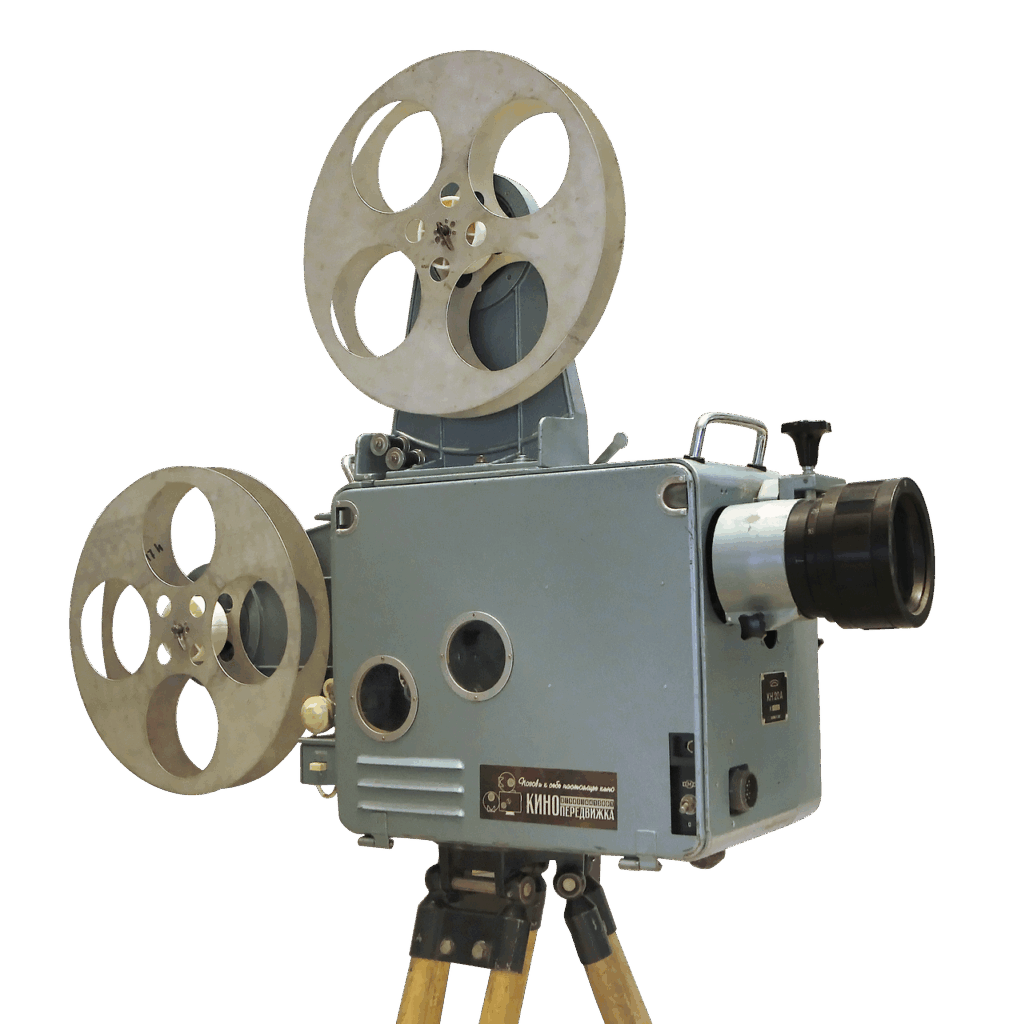
8. **Dreamcatcher (2003)**:Alright, let’s talk Stephen King. The King of Horror has given us some absolute cinematic gold, but he’s also responsible for some… well, some pretty epic misses. And sitting pretty near the very bottom of that list is 2003’s *Dreamcatcher*. You’d think with a cast featuring Damian Lewis, Morgan Freeman, and Timothy Olyphant, it would be a home run, right? Nope, absolutely not. The talent was all there, but the end product? It never once correlated to anything at all decent, making us wonder if they were even filming the same story as the one in the book.
King’s novel is a wild ride about four childhood friends who gain telepathic powers after saving an alien, only to find themselves embroiled in a new alien invasion years later. It’s got all the King hallmarks: small-town drama, supernatural elements, and deeply flawed characters. But the film adaptation? It completely fumbles the ball. It tries to juggle too many bizarre elements and just ends up feeling like a mess, losing any sense of coherent storytelling or genuine scares the book delivered.
One of the film’s most infamous missteps is its “late-stage swerve into monster movie territory,” which is described as “nothing short of dreadful.” It’s almost like the movie couldn’t decide what it wanted to be, ultimately settling on a confused, gross-out creature feature that alienates its audience rather than thrilling them. This one is a truly baffling cinematic experience that proves sometimes, even with a horror master like King and a stellar cast, things can go horribly, horribly wrong.
Read more about: From Rock Bottom to Red Carpet: 15 Celebrities Who Proved It’s Never Too Late For An Epic Comeback
9. **The Perfect Catch (2005)**:Next up, let’s talk about adaptations of Nick Hornby. His novels are known for their sharp wit, relatable characters, and particularly, their deep dives into “fussy, infuriating male neuroses.” While some adaptations, like *High Fidelity*, hit the bullseye even when transplanted to the US, the 2005 American remake of *Fever Pitch*, retitled *The Perfect Catch*, totally whiffed it. The original British film with Colin Firth was charming; this one? Not so much.
This version takes Hornby’s beloved story of a man whose life revolves around his beloved football (soccer) team, and transforms it into a “more throwaway and uninteresting big-city romcom.” Instead of the nuanced exploration of obsession and relationships, we get a generic Hollywood package. It’s like they took the unique flavor of Hornby and doused it in a bland, sugary sauce, losing all the delightful peculiarities that make his books so special.
The casting certainly didn’t help, either. Drew Barrymore is fantastic in her “girlfriend” role, which was significantly beefed up compared to the novel. However, watching her try to “source chemistry with a shrill and unappealing Jimmy Fallon (in one of his rare, pre-talk show acting roles) is harrowing.” Ouch! When the romantic leads have “zero chemistry,” especially in a rom-com, it’s a recipe for disaster, and *The Perfect Catch* proves that some stories just don’t translate well when stripped of their cultural context and quirky character depth.
Read more about: Mark Norell, 68, Visionary Paleontologist Who Uncovered Profound Links Between Dinosaurs and Birds, Dies
10. **The Da Vinci Code (2006)**:Ah, *The Da Vinci Code*. The book was a global phenomenon, sparking debates and captivating millions with its intricate puzzles, religious conspiracies, and thrilling chases. So, naturally, Hollywood jumped on it, hoping to replicate that success on the big screen. The 2006 film adaptation, however, is simply put, “a stinker of the highest order.” And you know it’s bad when the context literally calls it that!
Directed by Ron Howard and starring Tom Hanks as Robert Langdon, the film had all the ingredients for a blockbuster. But somewhere along the way, the magic got lost. The intricate plot, which was so compelling on the page, became sluggish and convoluted on screen. What should have been a pulse-pounding mystery felt more like a plodding lecture, desperately trying to explain itself without ever quite nailing the thrill of discovery.
The context points out that while its sequels (*Angels & Demons* and *Inferno*) were also “awful films,” *The Da Vinci Code* ranks as the worst because its commercial success paved the way for those subsequent disappointments. It’s a cruel irony: a successful bad movie that spawned more bad movies! The film stripped away the novel’s propulsive energy and genuine intrigue, leaving audiences with a forgettable, often baffling, experience that definitely didn’t make anyone want to revisit the Louvre.
Read more about: Discover 15 Classic & Thrilling Adventure Films: Treasure Hunts & Lost Worlds
11. **Eragon (2006)**:If there was one thing Hollywood wanted in the mid-2000s, it was another *Harry Potter* or *Lord of the Rings* style fantasy franchise. Enter *Eragon*, based on Christopher Paolini’s young adult fantasy novel. Twentieth Century Fox clearly had high hopes, aiming for it to be their “answer to Harry Potter.” But, as the saying goes, “the terrible reviews stopped that plan dead in its tracks.” Cue the sad trombone.
*Eragon* is the epitome of “the worst kind of fantasy adaptation,” where “all of the source materials’ sense of fantastical vibrancy disappears during its translation to the big screen.” The book introduced readers to a rich world of dragons, magic, and destiny through the eyes of a farm boy who discovers a dragon egg. It was epic, adventurous, and full of imaginative wonder.
The film, however, managed to drain all that vibrant magic away, leaving a dull, lifeless husk of a fantasy story. The visual effects, which should have been breathtaking, felt underwhelming, and the performances didn’t do much to elevate the generic script. Instead of soaring to new heights, *Eragon* crash-landed hard, becoming a cautionary tale for studios hoping to instantly replicate the success of beloved fantasy novels without truly understanding their appeal.
Read more about: Stop the Rewind Button: 12 Over-the-Top Fantasy Epics You Should Absolutely Avoid Streaming
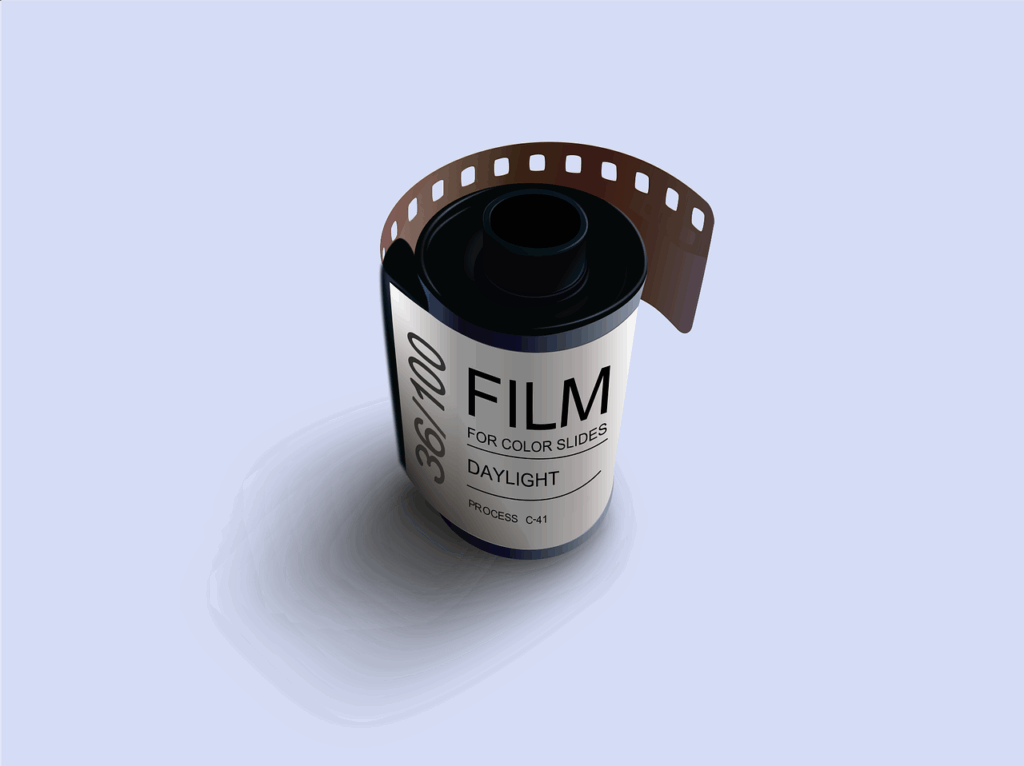
12. **Running with Scissors (2006)**:Alright, let’s dive into a different kind of adaptation disaster with *Running with Scissors*. Augusten Burroughs’s memoir is a tricky beast, constantly balancing “a dangerous tightrope between manic farce and adolescent horror tale.” It’s quirky, dark, hilarious, and deeply unsettling, exploring a childhood spent in a dysfunctional, eccentric household. A challenging book to adapt, for sure, but a compelling one.
Ryan Murphy, making his feature film debut in 2006, was naturally “attracted to a tale of neurotic family dysfunction and ual awakening” – themes that pop up a lot in his TV shows like *Glee* and *American Horror Story*. You can see the potential, but oh boy, did it miss the mark. His adaptation “collapses beneath such a task,” becoming a “tonal misfire from start to finish.”
Despite an absolutely stellar cast, including Annette Bening, Gwyneth Paltrow, Evan Rachel Wood, and Brian Cox, the film just couldn’t pull it off. It struggled to maintain the book’s delicate balance of humor and horror, often veering into uncomfortable and incoherent territory. The result was a film that “sunk without a trace,” proving that even with a talented director and an all-star ensemble, some narratives are just too complex and uniquely voiced to translate effectively to the screen without losing their essential essence.
13. **The Time Traveller’s Wife (2009)**:Oh, the romance! Audrey Niffenegger’s *The Time Traveller’s Wife* is a beautifully written, poignant, and genuinely convincing love story about a woman whose husband involuntarily time travels. It’s heartfelt, tragic, and explores the complexities of love and commitment against an impossible backdrop. Readers adored its emotional depth and unique premise. So, where did the movie go wrong?
“Where to start with this disaster of a film?” asks the context, which really sets the tone, doesn’t it? The film adaptation, starring Rachel McAdams and Eric Bana, was meant to bring this beloved story to life, but there’s “nothing convincing about its adaptation.” Producers apparently thought “casting two major Hollywood stars was a good idea,” but the biggest issue? McAdams and Bana “had zero chemistry.”
And honestly, if your entire romantic drama hinges on the passionate, enduring love between two characters who spend half their lives separated by time, and your leads have no chemistry, you’re in for a rough ride. The film failed to convey the powerful emotional core of the novel, instead presenting a diluted and unengaging version of a truly unique love story. It just goes to show that star power alone can’t create the sparks needed for a truly compelling romance.

14. **The Hobbit (2012-2014)**:We’ve saved a big one for last, folks! When Peter Jackson, the maestro behind *The Lord of the Rings* trilogy (which we *loved*!), announced he was adapting J.R.R. Tolkien’s *The Hobbit*, expectations were through the roof. It’s a “short and sweet” novel, set in a “familiar and adored world,” so fans genuinely did not expect it to be messed up. And yet, “that’s exactly what happened.”
Instead of a concise, magical adventure, we got three sprawling films. The *Hobbit* trilogy was a box-office success, sure, but it “came under fire from critics for stretching the book’s material too thin.” What could have been a delightful, focused journey became an overblown epic, padded with extra storylines, characters, and unnecessary CGI battles that weren’t even in the original book. It felt like Hollywood greed took over, trying to milk a single novel for three movies when one or two would have sufficed.
The third outing, *The Battle of Five Armies*, was universally “the worst-received of all three,” feeling less like a satisfying conclusion and more like a never-ending CGI spectacle. It’s a classic case of quantity over quality, where the desire for a new franchise overshadowed respect for the source material’s integrity. *The Hobbit* films stand as a stark reminder that even a beloved director returning to a cherished world can lose sight of what made the original story so special, leaving fans feeling bloated and bewildered instead of charmed.
Read more about: Lights, Camera, Walkout! 15 Times Directors Ditched Major Blockbusters Mid-Production
Wow, that was a journey, wasn’t it? From sci-fi disasters to rom-com duds, and from literary classics to beloved fantasy epics, these films prove that the path from page to screen is fraught with peril. It’s a rare and beautiful thing when Hollywood truly nails an adaptation, preserving the heart, soul, and magic of a book. But for these fourteen unfortunate souls, the cinematic gods just weren’t on their side. So, next time you hear your favorite book is getting the big-screen treatment, maybe cross your fingers, light a candle, and prepare yourself for the age-old truth: “the book was better.” And hey, at least we’ll always have the original stories, safe and sound on our bookshelves, ready to transport us to worlds that Hollywood sometimes, just sometimes, couldn’t quite grasp.

